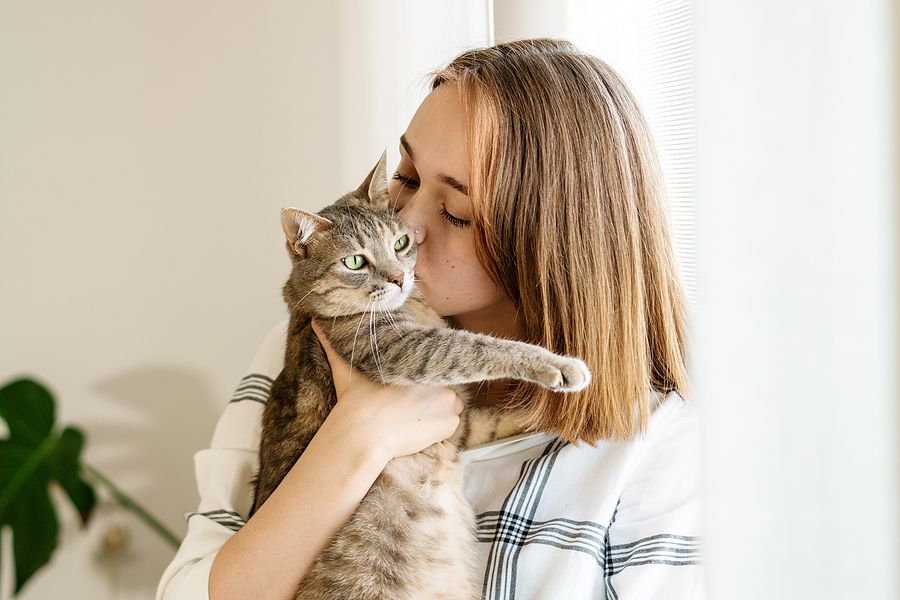Currently, science is unable to tell us for sure if cats sense when they’re dying. However, there are some signs that may support the belief that cats are able to tell when they are in their last days.
Cats’ Powerful Sense of Smell
As far as powerful noses go, cats have people significantly beat. The noses of felines contain more than 200 million scent receptors, compared to a human’s paltry 5 million. Because of this powerful ability to detect scents, it’s possible that cats can smell hormonal changes and differences in their own internal bodily processes, including those occurring shortly before their final days.
Cats May Understand Their Body’s Natural Progression
Humans are pretty good at understanding basic bodily conditions at any given time – thirst, hunger, pain, fatigue, anxiety. These are typically quite easy sensations to focus on. Yet, cats sense things that we don’t because they seem to be much more in touch with what’s happening in their bodies. They may also have an innate understanding of what their bodily changes mean, including those indicating their final days are approaching.
For instance, they might not be able to tell exactly what’s wrong with them and what they need to fix it. But they may have grasped a general understanding of what it means when their bodies start to feel a certain way.
How Your Cat May Tell You Its Time Is Near
Let’s examine a couple of behaviors that may happen in your cat and how they might reveal its awareness of what’s happening.
1. Loss of Interest in Life-Sustaining Needs
Weakness brought about by the passing process can make it difficult or impossible for your cat to take care of itself – it may stop eating, drinking, grooming himself, or using the litter box. This can be a sign that your cat has accepted what its body is telling it or simply a sign that it is too weak to take care of its survival needs.
2. Your Cat May Hide
On this topic, the scientific consensus is clear – cats do tend to hide before they pass away, and they prefer to be in seclusion during these moments. This isn’t because they don’t love their owners, but simply a natural instinct built into them.
In the wild, a dying cat provides easy pickings for hungry hunters. Weak, slow, and disoriented, it is unable to put up much of a fight against predators. So, the instinct is to find a safe area to pass peacefully in solitude.
3. Changes in Attitude or Behavior
Because your cat isn’t feeling well, it may display otherwise uncharacteristic behavior. This could look like lethargy and disinterest from typically playful and energetic cats. Or it could spark bits of aggression in even the most docile cats, especially if they’re experiencing pain.
Final Thoughts
While these signs may indicate that your cat is nearing its final days, this isn’t always the case. Your cat isn’t cognitively aware of modern medicine and treatments that can cure sicknesses that would be fatal to them in the wild. If your cat is displaying any of these behaviors in a way that is atypical of it, be sure to take it to the vet! This will give you peace of mind and potentially extend your cat’s life expectancy.
Midlands Pet Care for the Afterlife of Your Beloved Cat
Whether cats when it is or not, there will be a day when they pass along. We know you want this to be as much of a comfortable experience for your pet as it can be. Midlands Pet Care wants to help you and your beloved pet prepare for this emotional day with compassionate pet end-of-life services. Contact us to create a plan for your pet so you don’t have to think of the logistics when the day comes and can spend quality time with your cat instead.
- Feel free to also check out our collection of memorials to honor your pet.

